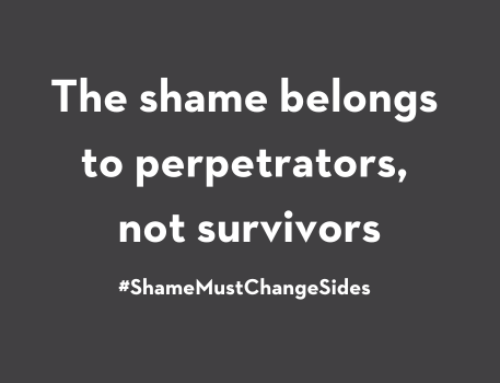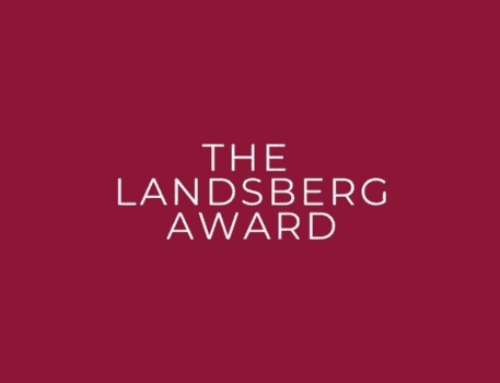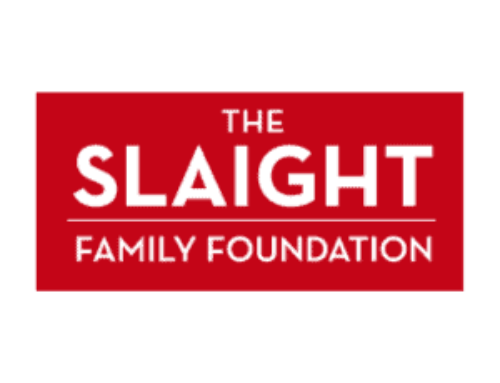
She was 11 when she moved from her grandmother’s home in Jamaica to join her family in Canada, and struggled with culture shock and a new school. “The school system didn’t really value me and didn’t really see me as bright and capable; in fact, it told me the opposite.”
One of Paulette’s teachers decided she didn’t belong in her grade level, so she was streamed into “an incredibly basic form of education”. But when a different teacher later recognized she didn’t belong there, she got the chance to re-join the regular stream.
“Coming back from that impact on my self-esteem has been a lifelong journey. And the way I’ve made it work is by remembering who I am. That I am indeed capable, and that I am committed to justice and equality.”
Her childhood experience ignited her interest in fairness, activism, hurdling and removing barriers. She went on to work on the front lines of social services, including women’s shelters, employment and housing programs, as well as advocating for the rights of women and girls.
“I’ve been an activist my entire life, and I think activism shapes you in a way where you see something that is wrong and you have to address it. Maybe that’s what prepared me for the kind of leadership role I’m in now.”
Paulette comes to the Foundation after over 10 years as CEO of the YWCA Canada, and has won many awards for her work along the way. As she starts this new chapter in her career, Paulette reflects on what drives her work for women and girls, where she hopes to take the Foundation, and the woman who inspires her the most.
Q: What drives your commitment to improving the lives of women and girls across Canada?
A: My commitment comes from grassroots work and my own personal experience.
From early on in my career, I’ve had the privilege of working with families in communities and areas that are socio-economically challenged. From that work, I realized that the roles could easily have been switched; that it could have been me living in those circumstances, but for my own family being there to support and guide me.
I was married at an early age and became a single mom a few years later, and then became a full-time student going back to school. So having my family there to support me was a huge bonus. It gave me that solid foundation that a lot of women don’t have.
When I see the difference organizations such as the Canadian Women’s Foundation and the YWCA make in the lives of women, I realize that such support shouldn’t be a privilege. It should really be policy, it should really be the way that our society is structured, where there’s affordable childcare and housing, and freedom from violence—where women and their families have access to the resources they need to fulfill their potential. That’s what drives me.
Q: What attracted you to this position at the Canadian Women’s Foundation?
A: The premise of the Foundation when it was created was to transform the lives of women and to support the underpinning of a women’s movement in Canada. Being able to lead the next iteration of that is an incredible opportunity.
I think we are at a critical turning point with the Foundation. We have a new strategic planning process coming up, which will give us time to do a bit of a re-set, taking account of the incredible accomplishments we’ve had to date, and then looking to see what we want the next 25 years to be about.
I’m really excited about that. We can create the future together for women right across the country. Women with all kinds of experiences can be a part of the Foundation and see themselves reflected in our work.
Q: Much of your work has focused on removing barriers for women and girls. What barriers have you faced in your own journey?
A: Being a black woman and dealing with systemic issues and barriers is no different than what other women from racialized and marginalized communities face. I can relate to that and I’m an advocate for systemic change.
We have to do the ground work and make sure that women are housed, safe, supported, and cared for at a community level.
But I also believe that the work that we’re doing should make a difference in the lives of future generations of women, so that they don’t have to face the same barriers. It’s important that the Foundation has that lens of creating systemic change.
Q: What accomplishment are you most proud of so far?
A: In my life, I’m most proud of a son that I’ve raised who is now a young man, and that he’s on track with his own goals in life.
I’m also proud of the time I’ve spent in the YWCA and the impact I’ve been able to make. I’m particularly proud of the young women who are now part of the YWCA movement, who are leaders in their own right, and are taking up the mantle of leadership personally and professionally.
I like to lead from the middle sometimes, sometimes from the front, sometimes from the back, depending on what’s needed. But I also like to push people forward.
I would like to know that part of my legacy at the YWCA is that the organization is in a solid place. Even though we will miss each other to tears, we have a whole pipeline of women of various diversities, abilities, and experiences who can step into leadership roles.
Q: What are you looking forward to the most as CEO of the Foundation?
A: I’m looking forward to meeting and engaging with supporters, and bringing them on board, committed to the vision of the Foundation. I want to get people excited about the potential of this organization and what we can do together.
What I want to bring is confidence that we’re on track, that we’re here to stay, that we’re a trusted charity where our supporters can invest their hard-earned resources. And that they can work with us collaboratively to make a difference in Canada and the world.
Q: How do you create a culture of inclusion in your work and as an advocate for gender equality?
A: It’s by example, but it’s also through policy. It’s important that what we believe in is reflected in our policies and in our practices.
I’m excited about what I was able to accomplish at the YWCA, where the board is now inclusive of Indigenous women as leaders. In fact, one of the Indigenous women formerly on the national board was recently elected to the World YWCA board—the first one we know of.
At least 25 per cent or more of the YWCA board is inclusive of young women, and its diversity, not just in terms of women, but in terms of women of colour, has completely changed. And, as the organization does that work nationally, it’s being reflected locally across the country. That’s pretty fantastic.
I want to really walk in that space with the people I work with, and make it clear that the Canadian Women’s Foundation will work from an inclusive perspective, that we will hire with an inclusive lens, that we will be respectful of the Indigenous land that we’re on, and that we will work towards reflecting and supporting the diversity of women in Canada.
Q: What do you think it will take to achieve gender equality in Canada, and what is the Foundation’s role in achieving that?
A: I think we need to set a timeline, and we need to invest in achieving gender equality. I’d also like to see the elimination of violence against women and girls; I don’t think that’s impossible. I think that with concerted effort over a period of time, we can make it happen.
In 25 years, what I want to see is a complete change in terms of setting a target and working towards accomplishing it. The Foundation can play a critical role in that. We can work with others to help set the agenda for the next couple of decades, and create a strategic partnership and process with government, community collaborators and corporations to develop targets we can work towards together. I think the Foundation and other like-minded organizations need to be working collaboratively to change and transform the landscape for women and girls in Canada.
It’s also going to take investment from our federal government and other levels of government. We have a Prime Minister who understands the importance of gender equality. He’s on the right track so far, by being an example of how that can work, and must also provide much-needed resources for a national, collaborative long-term strategy.
And that example is important for corporations—it was in the news recently that about half of the companies on the Toronto Stock Exchange have no women on their boards. That’s got to change.
Q: Do you have any advice for aspiring leaders?
A: As I left the YWCA, I met with colleagues to talk about their goals and what they wanted to do. It was an open chat on “What do you want to ask me?”
I don’t see them as aspiring leaders, I see them as leaders. I’m impressed with young women today—all that they have accomplished, how they’re unstoppable—they inspire me.
I think the best advice I have is to be true to who you are—unapologetically.
Q: What’s your favourite thing to do when you’re not being a CEO?
A: Be with my family. At this stage, I value family above all. I had the experience this year of losing my dad and, over the past year, my mom has been in palliative and long-term care.
She’s an incredible stalwart; my mom was a pioneer. She’s the one that gave up Jamaica and led my dad and the rest of us here.
She’s not anyone who would carry a sign and march on the street; she left that to me. But, she has quietly been the strongest woman that I’ve ever met.
She’s raised six children, helped with raising her grandchildren, and worked in the hotel industry for 25 years, doing work that many people wouldn’t do, in order to support her children. I look to her as my source of inspiration.
I look at this woman who is now 86 years old, who has this incredible love and strength combined, and I’m in awe of it. Anyone that comes in contact with her can’t help but appreciate it, because it’s rare.
The thing that my mom has taught me most is the importance of generosity, love and strength, no matter what. I’m still learning lessons from her, even at this stage.







